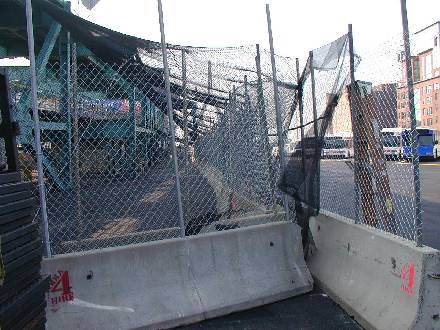
In “The Footnote Judges Ignore” (Inside Higher Education, August 15, 2011), Scott Jaschik reports,
The American Association of University Professors is trying once again to get federal judges to pay attention to a footnote.
The footnote in question — in a 2006 Supreme Court decision limiting the free speech rights of public employees — explicitly stated that the decision in Garcetti v. Ceballos did not apply to faculty members in public higher education. Some (but not all) federal courts have been ignoring that footnote, and the AAUP filed a brief last week in one such case, which the association says highlights the dangers of the way Garcetti is being applied to free speech for faculty members.
The case that the AAUP entered is one in which a federal judge in February was explicit in finding that Garcetti removed protections for much faculty speech. “[S]ince Garcetti, courts have routinely held that even the speech of faculty members of public universities is not protected when made pursuant to their professional duties,” said the ruling.
It’s bad news, but more or less inevitable, given that university campuses have been, since the 1980’s, the least free sector of society. This prof case was bad enough:
Capeheart sued the university, charging that it retaliated against her by refusing to let her serve as department chair — despite being elected to the post by her colleagues — because of her activism on campus.
(So the profs don’t know who their chair should be?)
Gets worse: In The Wall Street Journal (August 20, 2011), Peter Berkowitz notes that now, under government pressure, “universities abandon any pretense of due process in sexual assault cases.”:
Most egregiously, OCR requires universities to render judgment using “a preponderance of the evidence” standard. This means that in a rape case, a campus disciplinary board of faculty, administrators and perhaps students serves as both judge and jury. Few if any of these judges are likely to have professional competence in fact-gathering, evidence analysis or judicial procedure. Yet to deliver a verdict of guilty, they need only believe that the accused is more likely than not to have committed the crime.
This is the lowest standard. It is much less demanding than “beyond a reasonable doubt,” which is used in the criminal justice system, and the intermediate standard of “clear and convincing proof.” Yale, Stanford and many other universities have rushed to comply with OCR’s directives.
Just wait till they adopt neurolaw, and the “evidence” will then be that the accused has the sort of brain associated with people previously convicted. Once we get into materialism, it all pretty much follows, with only brief pauses before the next descent.
And yes, students have it far worse than profs, as Foundation for Individual Rights in Education (FIRE) can testify. Check out their regular Speech Code of the Month feature. Also, the warning to parents that college ain’t what it used to be.
Whether your own college experience was more like The Paper Chase or Animal House, you can be sure that today’s campuses are neither. Instead, your tuition and tax dollars are funding an ever-growing army of bureaucrats that police everything from free speech to dating. Administrators now outnumber faculty on our nation’s campuses, and even students’ innermost thoughts are subject to their oversight. Each year, the college experience gets closer to that of a TSA line at the airport — but one that you have to live in for four years.
And now, when it comes to free speech, the profs will have to either put up or shut up – for their entire careers.
Follow UD News at Twitter!